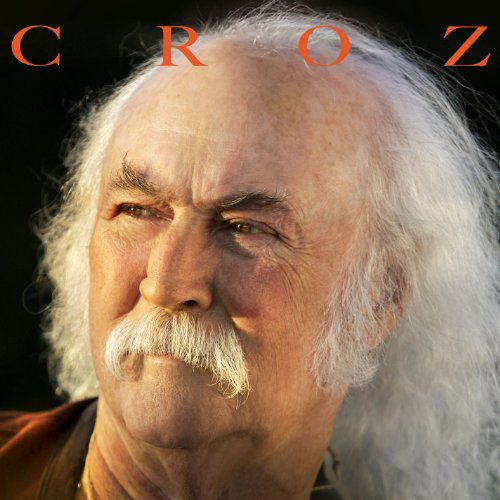
David Crosby
Croz
Release Date: Jan 28, 2014
Genre(s): Singer/Songwriter, Folk-Rock, Pop/Rock, Contemporary Pop/Rock
Record label: Blue Castle Records
Music Critic Score
How the Music Critic Score works
Buy Croz from Amazon
Album Review: Croz by David Crosby
Fairly Good, Based on 6 Critics
Based on rating 4/5
Recorded at his son's home studio, David Crosby's first solo studio album in two decades has a pleasingly jazzy feel, the arrangements full of blocky piano chords and big string bass which, with Crosby's much-envied harmonies, create a pleasant fug. Tracks such as What's Broken (which has fluid guitar from Mark Knopfler) have heavy hints of west coast AOR, a sound that in his leftfield way Crosby did much to create; the six-minute Dangerous Night adds a hip-hoppish beat to the mix. Standouts? The folky/eastern The Clearing plays with time and key signatures before a nice squelchy synth line kicks in, while Radio has a catchy chorus and shuffling drums.
Based on rating 7/10
It's been 20 years since David Crosby released a collection of new songs, but he's hardly been quiet in those two decades. His occasional reunions with Stephen Stills, Graham Nash, and sometimes Neil Young get the most attention, but he also appeared on David Gilmour's 2006 album On an Island and, more notably, often worked with his son James Raymond on a band called CPR. Raymond is David's chief collaborator on Croz, a skillful evocation of Crosby's early-'70s haze as filtered through early-'90s professionalism.
Based on rating 3/5
Twenty years since he last unloaded, David Crosby feels he has something he needs to get off his chest; though by his own admission Croz is unlikely to be a huge hit (those days are gone, one fears) it should resonate with his natural audience. What’s Broken (featuring Mark Knopfler, though not in the same room at the same time) and the mortality-facing Time I Have set the scene with some pretty bleak observations on the world outside and the struggle within the artist’s soul. His well-documented addictions are the “antithesis of peace”, and at least he faces demons head-on in Set That Baggage Down, combining a Byrdsy chord structure with a well-judged vocal that transports the listener back in time.
Based on rating 6/10
For people born long after his heyday, it can be hard to remember that David Crosby is a musician by trade. Yes, we know he was an integral part of Crosby, Stills & Nash, and his role as a leading light in The Byrds is undisputed. But while his old contemporaries still plough a musical furrow, Crosby has virtually disappeared from the singer-songwriter landscape for 20 years.
Based on rating 3
A 20-year hiatus is not insignificant, but in the case of David Crosby, one suspects that such an extended absence can be played down and maybe even overlooked entirely. This, after all, is a founding member of two seminal bands of the 20th century – The Byrds and Crosby Stills Nash & Young – whose contributions to modern music now surely transcend the cycle of record-release-tour, record-release-tour. Yet there are practical implications to such an elongated dark period, and it’s easily argued that the very fabric of music – and certainly the music business itself – has changed apace since Crosby’s last solo studio album, 1993’s Thousand Roads.
Opinion: Fairly Good
Croz is only David Crosby’s fourth solo outing, despite it being some 43 years since he released his debut, If I Could Only Remember My Name – a bona-fide, psychedelic folk classic (and, according to an official list released in 2010, the Vatican’s second favourite album of all time). Perhaps it was the sky-high standard set by that first record that stunted his future growth as a solo artist – or, more likely, it was due to the cornucopia of drugs that increasingly captured Crosby’s attentions over the decades. Indeed, unless someone has beaten me to it, I’ve got a mind to snag the film rights to the man’s life story – it’s prime-cut, Oscar-bait, weepie-epic, riches-to-rags-to-riches material.
'Croz'
is available now

